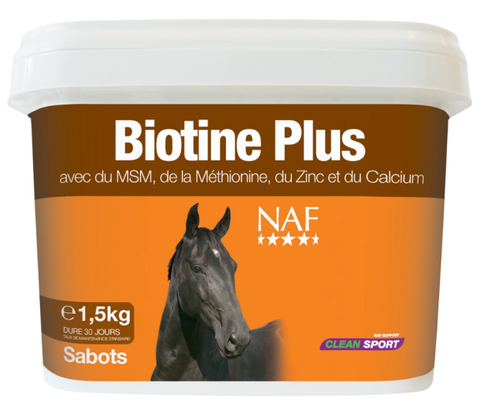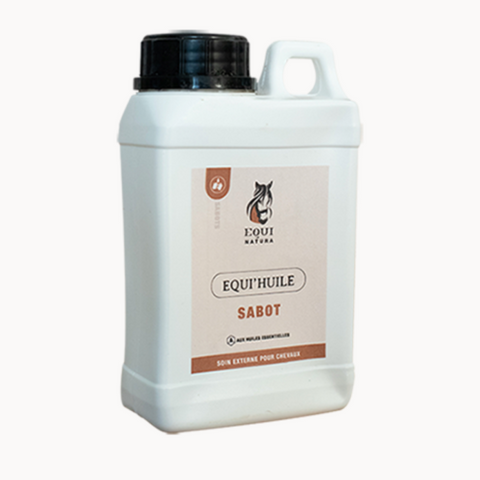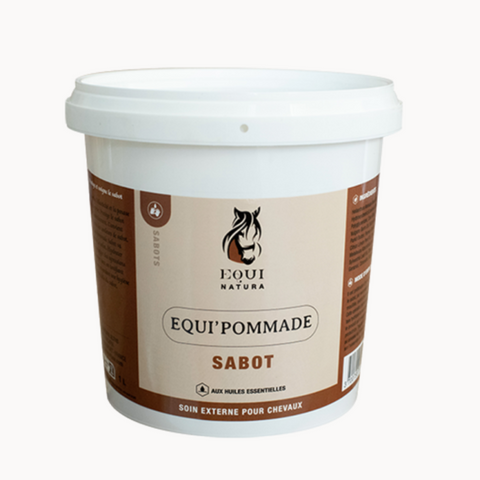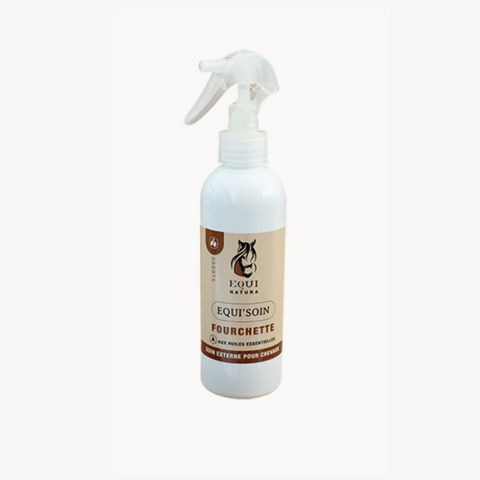Hooves
A well-known expression says: “no foot, no horse” which means that the hooves must be in good condition and resistant.
A healthy horn must be flexible, elastic and strong. For this, you must not rely solely on the work of the farrier, but good daily care is also essential. Many hoof problems are due to lack of care or ignorance.
Additionally, regular exercise helps keep hooves in good condition. Walking, trotting and galloping subject the hooves to continual variations in pressure, which plays a very important role in blood circulation and the necessary trophic supply to the horn. All this is important for the growth of the horn, the quality of the wall and its resistance.
The elasticity of the wall also depends on its moisture content; high humidity increases strength. On the other hand, if the horn dries out, it hardens and becomes friable. The absorption of water by the horn occurs very slowly; also a simple showering of the hooves is insufficient. Equi'huile Sabot and Equi'pomade Sabot help maintain the humidity of the hoof.
Always moisten the hoof first and then apply the product, never the other way around. The product will lock moisture into the hoof, but if you grease the hoof first and shower it afterwards, the product will prevent moisture from entering.
Also watch out for excess humidity. Horses that stay too long in the rain need a good protective oil such as: Equi'huile Sabot or Equi'pomade Sabot for hooves for the wall and: Equi'soin Fourchette specifically for the sole.
The hooves of stabled horses require even more care. It is necessary to clean the feet daily and check that there are no small stones and dirt in the side gaps. Check the range and wall humidity regularly. A clean stable also helps avoid problems.
It goes without saying that hooves should be trimmed every two months by the farrier, but unfortunately not everyone is so careful. If the hooves are too long, they will split and the farrier will have more and more difficulty trimming them correctly. Neglected hardware can also have unfortunate consequences and must be replaced regularly.
Nutrients of the hoof :
In order to preserve the quality of the hooves, a supply of sulfur, methionine, zinc, vitamin A, B vitamins and biotin is of the utmost importance.
The horn of the hoof is essentially formed by keratin, a protein produced by the perioplic rim (the crown). Recent research has highlighted the influence of biotin but especially sulfur on the quality of hooves.
Sulfur visibly improves the quality of the horn structure through strong sulfur bonds. Almost 50% of the keratin in the hoof is composed of sulfur.
Biotin is especially important for the periople, especially in terms of horn growth and controlling the humidity level in the hoof. To settle, it needs the presence of calcium. Methionine and zinc are essential for keratogenic tissues.
Lysine, manganese and vitamins B3 and B6 are necessary for the growth and good vitality of hooves.
Vitamin C, a powerful antioxidant, plays a vital role in repairing and maintaining healthy horniness.
A deficiency in any of these substances can cause problems.
The horn grows on average 7 to 10 mm per month. Total renewal of the horn therefore lasts between 10 and 12 months. The substances mentioned do not influence the growth rate of the horn. Their beneficial effect is only visible after a few months (three on average) and reaches its maximum after approximately 12 months.
So be patient, poor horn quality does not recover in a few weeks.




